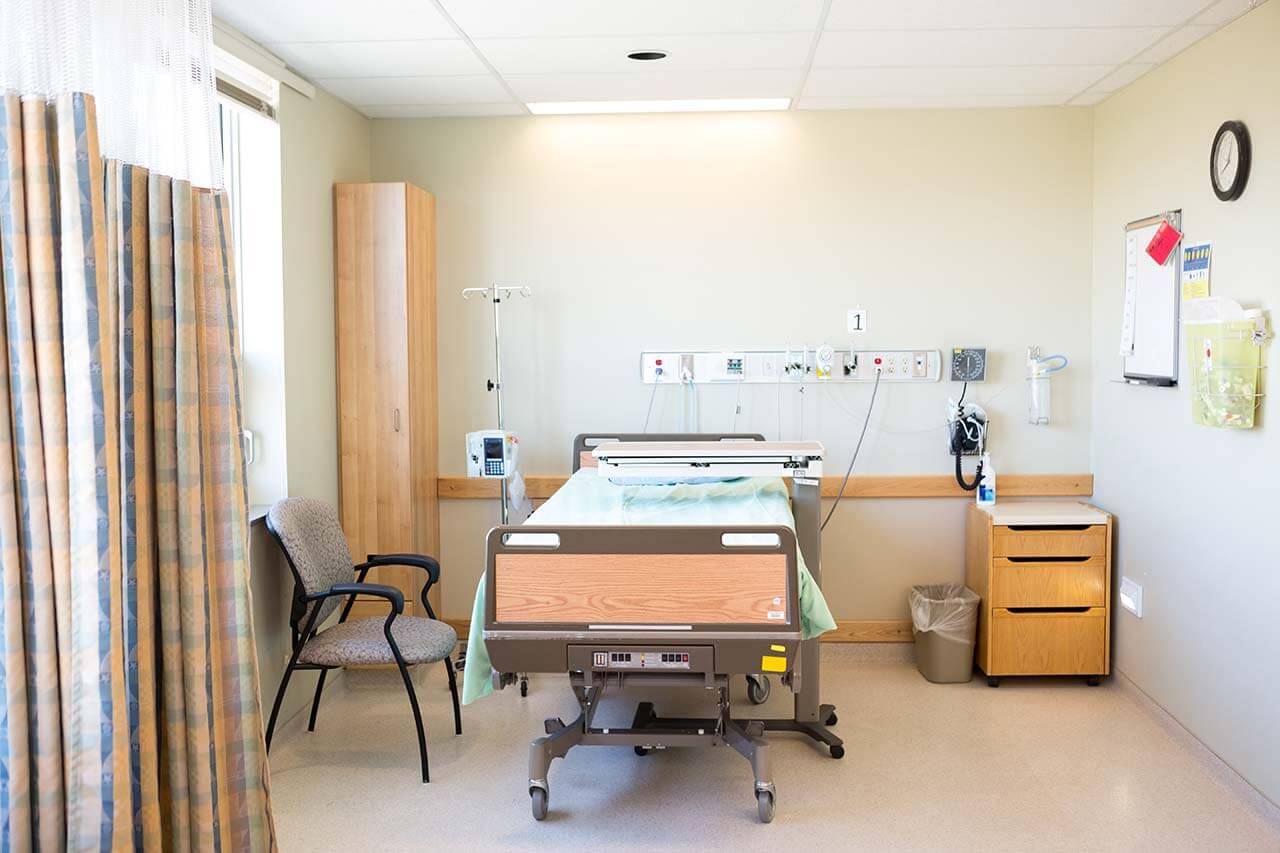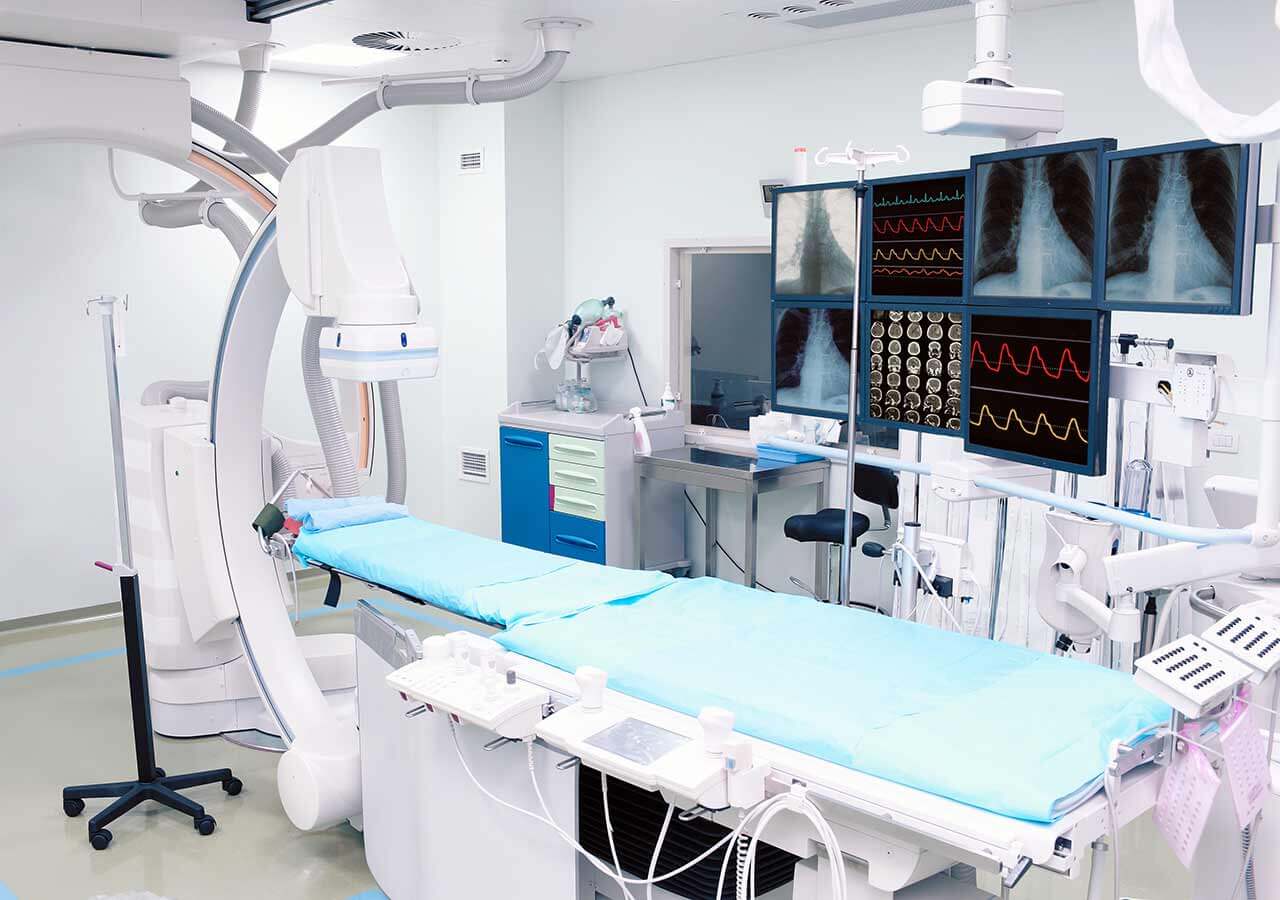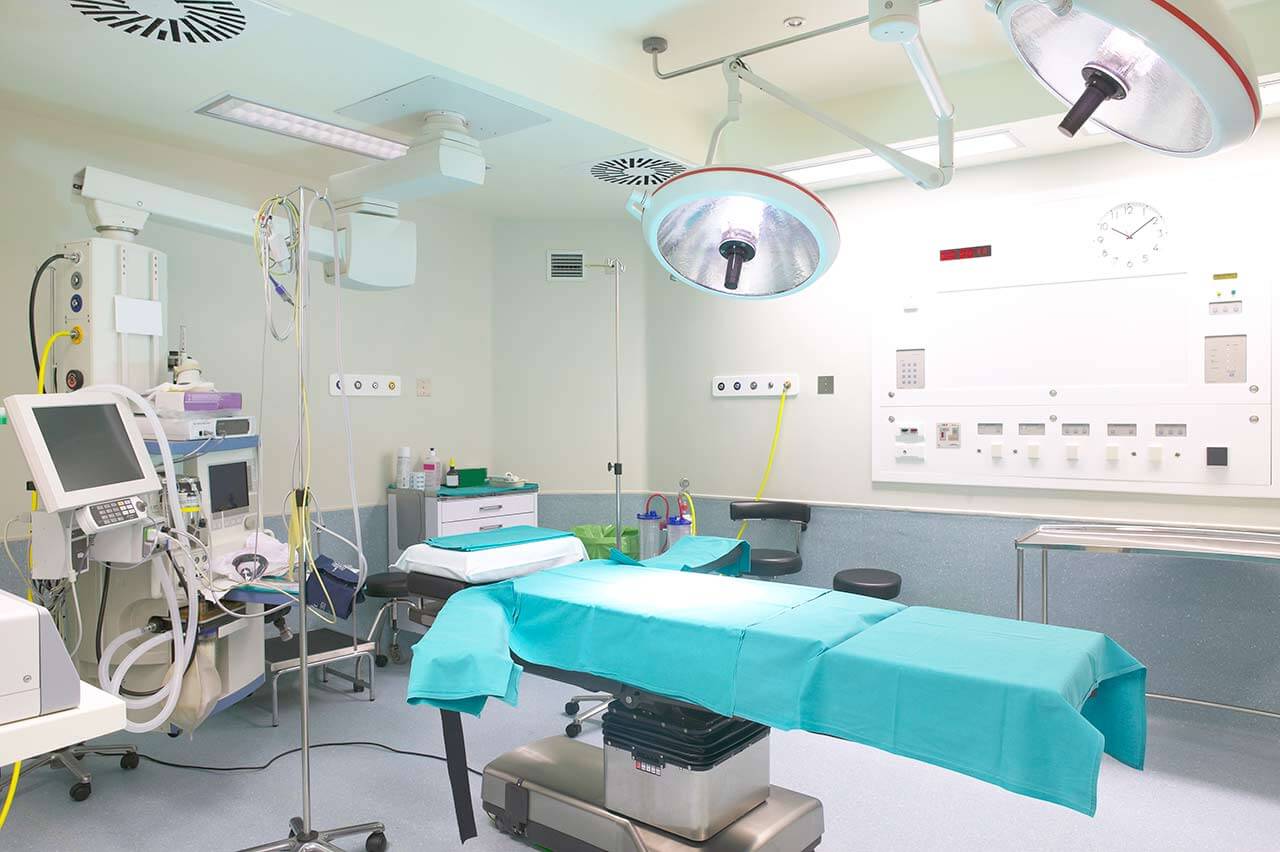
The program includes:
- Initial presentation in the clinic
- clinical history taking
- physical examination
- cardiological examination
- laboratory tests:
- complete blood count
- general urine analysis
- biochemical analysis of blood
- TSH-basal, fT3, fT4
- indicators of inflammation
- indicators blood coagulation
- measurement of arterial blood pressure
- electrocardiogram
- holter monitoring (24h)
- transesophageal echocardiography
- cardiac catheterization
- preoperative care
- percutaneous balloon valvuloplasty
- symptomatic treatment
- control examinations
- cost of essential medicines and materials
- nursing services
- full hospital accommodation
- explanation of future recommendations
Required documents
- Medical records
- Echocardiography (if available)
Service
You may also book:
 BookingHealth Price from:
BookingHealth Price from:
About the department
The Department of Internal Medicine, Cardiology and Conservative Intensive Medicine at the Vivantes Humboldt Hospital offers the full range of treatment of internal diseases. Diseases of the heart, lungs and pathologies associated with circulatory disorders are treated here. Approximately 5,000 inpatients are treated annually in the department, and about 1600 patients receive medical care in the intensive care unit. The head of the department is Prof. Dr. med. Steffen Behrens.
The department is a supra-regional center for research in the field of cardiology and treatment of heart diseases. It employs highly professional specialists with extensive experience in the treatment of coronary heart disease, heart failure, structural heart diseases, heart valve diseases and cardiac arrhythmias.
Special treatment areas of the department include cardiac catheterization and treatment of acute myocardial infarction, ischemic heart disease. An equally important focus is given to the treatment of cardiac rhythm disturbances by electrophysiological examination and catheter ablation, for example, elimination of atrial fibrillation by the isolation of pulmonary veins. In cooperation with the German Heart Center of Berlin (DHZB), doctors of the department perform transcatheter aortic valve implantation (TAVI) - a gentle method for replacing the aortic valve. The department has extensive experience in the field of pacemaker implantation.
To ensure quality diagnostics and effective treatment, the department has all modern invasive and non-invasive methods of examination, from ECG to ergometry and spirometry. The department is equipped with two laboratories for cardiac catheterization, where coronary angiography and electrophysiological studies of the heart are performed, with two rooms having modern high-performance 3D ultrasound devices for diagnosing structural heart diseases.
The main priority of the medical team of the department is health and well-being of patients. Being a highly professional team, doctors offer the best diagnostics and therapy, taking into account the individual needs of the patient. It should be noted that the specialists of the department specialize not only in the treatment of acute conditions, but also provide many services in the field of prevention of cardiovascular diseases: consultation on nutrition and healthy lifestyle, sport groups to prevent heart diseases.
The department participates in international scientific research together with various hospitals, including the university ones. For example, the department is an academic training hospital of the Free University of Berlin. Doctors of the department conduct lectures for medical students and they hold practical classes directly in patients' wards. Scientific symposiums and seminars are held on a regular basis, also monthly additional trainings in cooperation with other departments of internal medicine. In addition, the department actively cooperates with the Register of Heart Attacks in the city of Berlin (BHIR).
The range of medical services of the department covers:
Non-invasive cardiac diagnostics
- ECG (electrocardiogram)
- Daily monitoring with ECG
- ECG with load (ergometry)
- Long measurement of blood pressure
- Study of lung function (total plethysmography of the body)
- Echocardiography, including 3D
- Transesophageal echocardiography
- Stress echocardiography
- CT of the heart (computed tomography, in cooperation with the Institute of Radiology)
- MRI of the heart (magnetic resonance imaging in cooperation with the Institute of Radiology)
Interventional cardiology
- Ischemic heart disease (coronary artery narrowing) and angina pectoris
- Acute myocardial infarction
- Heart failure
- Diseases of the heart valve, for example, stenosis of the aortic valve and insufficiency of the mitral valve
- Diseases of the heart muscle (eg, myocarditis, accumulation disease, cardiomyopathy)
- Pulmonary hypertension
Structural heart diseases
- Closure of the auricle (Implantation of the Watchman device to prevent strokes in patients with atrial fibrillation who can not take blood thinning medications)
- Closure of the atrial septum defect, for example, closing the oval hole of the heart with the help of an implantable device (Amplatzer occluder), in particular, to prevent the formation of blood clots (paradoxical embolism)
- Rhythmology
Device implantation for such diseases:
- Vascular collapse (syncope)
- Cardiac arrhythmia occurring in the heart chambers (ventricular tachycardia)
- Severe heart failure
- Dizziness
- Slow pulse
Electrophysiological research and catheter ablation in such clinical pictures
- Tachycardia and cardiac arrhythmia of unknown origin
- Atrial fibrillation
- Supraventricular tachycardia, including atrial flutter (atrial tachycardia)
- Ventricular tachycardia and ventricular extrasystoles
Intensive Medicine
- Invasive ventilation with modern fans
- Noninvasive ventilation of the lungs through a mask in COPD and copious discharge from the nasal cavity
- Advanced hemodynamic monitoring (PiCCO) for patients after shock
- Extracorporeal elimination of CO2 (PRISMALUNG)
- Renal replacement therapy with regional anticoagulation (citrate-CVVHDF)
- Device cooling after resuscitation (target temperature control)
- Percutaneous dilatational tracheostomy with prolonged ventilation (tracheotomy)
- Bronchoscopy
- Ultrasound of the heart (echocardiography)
- Echography
Additional offers
- Sport groups (for patients who underwent heart surgery or heart disease)
Curriculum vitae
- 1986 - 1994 Internship, Berlin (Moabit Hospital and Charité hospital, Benjamin Franklin Campus).
- 1994 - 1996 Scholarship for research, Washington, USA.
- 1997 - 2001 Senior physician at the Department of cardiology, Charite Hospital, Benjamin Franklin Campus.
- Since 2002 the head physician of the Vivantes Humboldt Hospital.
- Since 2005 the head physician at the Vivantes Spandau Hospital.
Membership in Professional Societies
- German Society of Cardiology.
- Berlin-Brandenburg Society of Cardiology.
- American Society of Heart Rhythm.
Photo of the doctor: (c) Vivantes Netzwerk für Gesundheit GmbH
About hospital
An academic clinic of the university medical complex Charité, the Vivantes Humboldt Hospital is one of the largest specialized medical institutions in Berlin. The hospital is famous for its impeccable reputation in the field of traumatology, orthopedics, urology and gynecology, as well as treatment of oncological diseases. Treatment in these fields is performed within the specialized centers at a hospital of national importance.
The Humboldt Hospital has 24 medical departments and about 700 beds at its disposal. Every year, a team of 250 doctors treats about 65,000 patients. The hospital combines high medical qualifications and modern technologies: urologists-surgeons employ operating system Da Vinci, Holmium laser enucleation of the prostate and therapeutic robot, neurological rehabilitation uses exoskeleton for walking training after acute disorders of cerebral circulation.
High quality of treatment is proved by the participation of hospital in the "Initiative of Quality Medicine" (Initiative Qualitätsmedizin, IQM) program.
Photo: (c) depositphotos
Accommodation in hospital
Patients rooms
The patients of the Vivantes Humboldt Hospital live in comfortable single and double rooms.
Rooms are equipped with everything necessary to make the patient's stay in the hospital as convenient and pleasant as possible. It is worth noting the modern and stylish design of the rooms are at the level of a first-class hotel.
Each room has a separate bathroom with toilet and shower. The rooms also have internet access, satellite TV and a telephone.
Meals and Menus
The hospital offers delicious and healthy meals. For lunch, the restaurant offers an abundant selection of meals from 10 menus. There is also a vegetarian and diet menu.
Further details
Standard rooms include:





